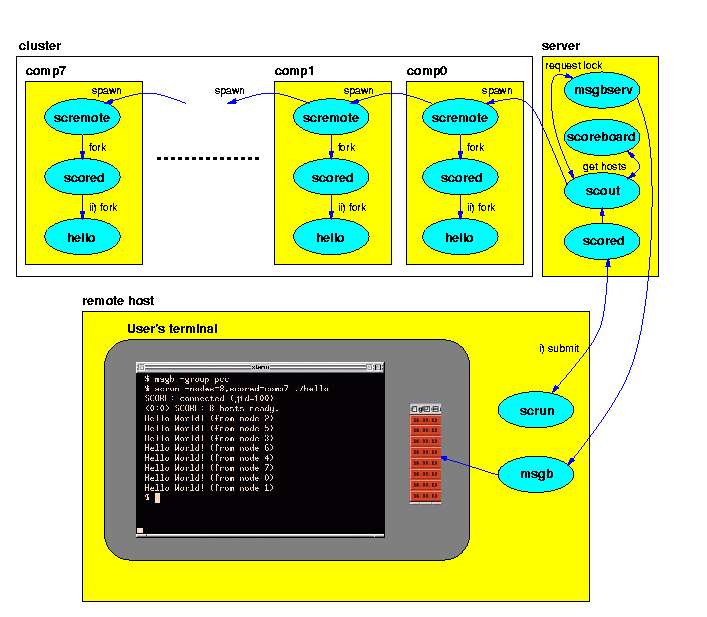
scout and
scored are executed by the root user on a host machine in the
network, and user's execute scrun commands specifying the host
where scored is running. Thus, multiple users can execute
programs on the cluster based on the scheduling policies of scored
executed by the root user.
Suppose that you have a cluster of eight compute hosts, i.e., comp0
through comp7, and a server host running the Cluster Database
Server (scoreboard), the Compute Host Lock Server
(msgbserv), and root has started scout and
scored processes.
Here is an example session to execute the hello command on the
cluster:
$ msgb -group pcc $ scrun -nodes=8,scored=comp7 ./hello SCORE: connected (jid=100) <0:0> SCORE: 8 hosts ready. Hello World! (from node 2) Hello World! (from node 5) Hello World! (from node 3) Hello World! (from node 6) Hello World! (from node 4) Hello World! (from node 7) Hello World! (from node 0) Hello World! (from node 1) $The procedure to execute
hello is as follows:
scrun is issued by the user to execute the program.
It requests scored, running on host comp7
(the default host is the last host in the cluster group), to execute the
program on 8 of the compute hosts.
scored requests the scored processes running
on the cluster hosts to fork and exec the user's program which will
execute until completion. When the program completes, the user
processes are terminated.

It should be noted that the Compute Host Lock Server is continuously locked
by the scored process running on the server host. This disallows
other processes to lock the Compute Host Lock Server and execute their own
programs.
 |
PC Cluster Consotium |